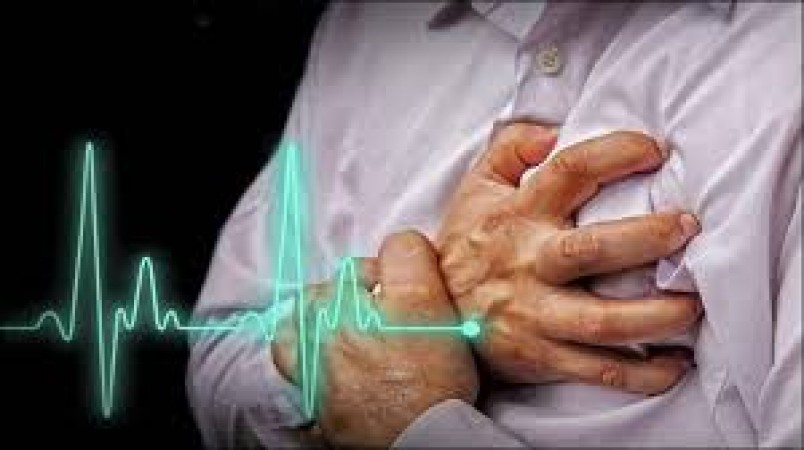
Recognizing the Symptoms
A heart attack, also known as a myocardial infarction, is a serious medical emergency that requires immediate attention. Knowing the signs and symptoms of a heart attack can help save lives. Here are some key indicators to watch out for:
1. Crushing Pain in the Chest
One of the most common symptoms of a heart attack is a feeling of intense pressure or tightness in the chest. This sensation may be described as crushing or squeezing, as if a heavy weight is pressing down on the chest. Individuals experiencing this symptom often liken it to an elephant sitting on their chest or a tight band constricting their torso. The pain can be severe and persistent, lasting for several minutes or even hours.
2. Chest Pain Radiating to the Arm
The pain associated with a heart attack often radiates from the chest to other areas of the body, particularly the arms. While the left arm is most commonly affected, pain may also be felt in the right arm or even in the shoulders, neck, jaw, or back. This phenomenon occurs because the heart and nerves share the same pathway, causing pain signals to be referred to distant parts of the body. Therefore, individuals experiencing chest discomfort that spreads to the arms should seek medical attention immediately, as it could be indicative of a heart attack.
3. Chest Pain Accompanied by Discomfort in Other Areas
In addition to chest pain, individuals experiencing a heart attack may also report discomfort or pain in other areas of the body. This can include the stomach, abdomen, or upper back. Some individuals may mistake these symptoms for indigestion or heartburn, leading to delayed treatment. However, it's essential to recognize that chest pain accompanied by discomfort in other areas could be a sign of a heart attack and should not be ignored.
4. Difficulty Breathing
Shortness of breath, also known as dyspnea, is another hallmark symptom of a heart attack. Individuals experiencing a heart attack may feel like they are unable to catch their breath, even when resting. This sensation of breathlessness can be distressing and may cause anxiety or panic in some individuals. It is important to note that sudden onset shortness of breath, especially when accompanied by other symptoms such as chest pain or dizziness, warrants immediate medical attention.
5. Breathlessness with Minimal Exertion
In addition to difficulty breathing at rest, individuals experiencing a heart attack may find it challenging to breathe during activities that would not normally cause any problems, such as walking or climbing stairs. This symptom, known as exertional dyspnea, occurs because the heart is unable to pump an adequate amount of blood to meet the body's demand for oxygen. As a result, individuals may feel breathless even with minimal exertion, which should prompt prompt medical evaluation.
6. Sudden Onset of Breathlessness
A sudden onset of breathlessness, particularly in the absence of any obvious triggers, can be a concerning sign of a heart attack. Individuals experiencing sudden shortness of breath, especially when accompanied by other symptoms such as chest pain, should seek immediate medical attention to rule out a cardiac event.
7. Nausea and Vomiting
Nausea and vomiting are common symptoms of a heart attack, particularly in women and older adults. These gastrointestinal symptoms may occur concurrently with chest pain or shortness of breath or may present independently. Individuals experiencing persistent nausea or vomiting, especially when accompanied by other symptoms such as chest discomfort or cold sweats, should seek medical attention promptly.
8. Cold Sweat
A sudden onset of cold sweats, especially when not attributed to external factors such as heat or exertion, can be a sign of a heart attack. Cold sweats, also known as diaphoresis, occur when the body's sympathetic nervous system is activated in response to stress or pain. In the context of a heart attack, cold sweats may occur in conjunction with chest pain, shortness of breath, or other symptoms and should prompt immediate medical evaluation.
9. Fatigue
Unexplained fatigue or exhaustion is another potential symptom of a heart attack. Individuals experiencing a heart attack may feel unusually tired or fatigued, even after getting enough rest. This profound fatigue may be accompanied by other symptoms such as chest discomfort, shortness of breath, or nausea. It is important to recognize that unexplained fatigue, especially when associated with other cardiac symptoms, should not be ignored and warrants prompt medical assessment.
10. Anxiety or Panic Attack
Some individuals may mistake the symptoms of a heart attack for those of a panic attack or anxiety. However, it is essential to differentiate between the two, as the appropriate management differs significantly. While panic attacks can cause symptoms such as chest pain, shortness of breath, and sweating, they typically resolve spontaneously and are not life-threatening. In contrast, a heart attack requires immediate medical attention to prevent complications and improve outcomes. Therefore, if you or someone you know experiences any of the aforementioned symptoms, it is crucial to seek medical help promptly to rule out a cardiac event. Recognizing the signs and symptoms of a heart attack is crucial for prompt medical intervention. Chest discomfort, shortness of breath, nausea, cold sweats, fatigue, and anxiety are all potential indicators of a heart attack that should not be ignored. If you or someone you know experiences any of these symptoms, it is essential to seek emergency medical attention immediately. Prompt treatment can help minimize damage to the heart muscle and improve outcomes for individuals experiencing a heart attack.
Which children have Thalassemia, how to identify this disease in the beginning
Wood sawdust being mixed in spices, how much can it spoil your health?
Prepare refreshing strawberry lemonade in summer, it is tasty as well as healthy